Reminiscence Theatre
Where do older adults fit into our world today? This question is currently one of great concern, politically, socially, and artistically. The growing field of Senior Theatre is one bold response. Through this week's series, we'll explore the many facets of this small but growing field. These stories highlight the sometimes-hidden power of the eldest members of our community, and share how much they have to offer to the world through their art. Since 2006, Antoinette Ford has put her energy into building The Double Nickels Theatre Company, a reminiscence theatre led by seniors. She takes cello lessons to enhance her storytelling performances. She is a Commissioner on the DC Commission on the Arts and Humanities. Toni came to reminiscence theatre after more than 15 years in business and upon assuming the responsibilities of Caregiving for her spouse.
“Why, when I was your age…..” My God, is there anything that can roll your eye balls to the back of your head faster than one of your slow talking, non-social media savvy Baby Boomer relatives waxing nostalgic? The earplugs save the day again!
But I did love it when my drama-queen Auntie Jay described her hip-swinging walk down Columbia Avenue in those fishtail skirts and red patent leather high heel shoes on a Friday night after telling her mama (my grandmother) that she was going bowling.
Reminiscence theatre is a valuable way for seniors to contribute to our cultural sustainability and creative aging efforts. We recall the events that shape what we become. These events inform the narrative, highlight that which would be marginalized, and can serve as examples of a broader history.
My own stories began to be added to the cultural pot as I started my own sashay down wisdom’s road some years later. One day, I turned around and there was a wonderful, exciting collection of memories and experiences behind me. They were clamoring to be told to my own nieces, nephews, and young friends.
It is not pleasant when a hyperactive, over-achieving, attention-deficit, maniacal broad tries to retire. I had to find something to keep me fully engaged if I was to remain sane. My health was mostly fine, but I had not yet fully engaged my right brain and it was past time to move to my next adventure. I needed something creative, fun, and engaging. I wanted a real nostalgia trip that could be taken alone or with others. The world was my theatre and I could choose my stage.
It was this recognition that gave birth to my desire to perform and celebrate others’ personal experiences. I wanted to have these memories be more than stories told and then forgotten. Having grown up in a multigenerational household, I was influenced first-hand by the power of oral history. Research took me to the work of Pam Schweitzer, whose book Reminiscence Theatre: Making Theatre from Memories became my bible. Once started, it was an easy leap to begin designing ways to gather and perform stories. Luckily, I also had experience in video production and script development. Double Nickels Theatre Company was born.
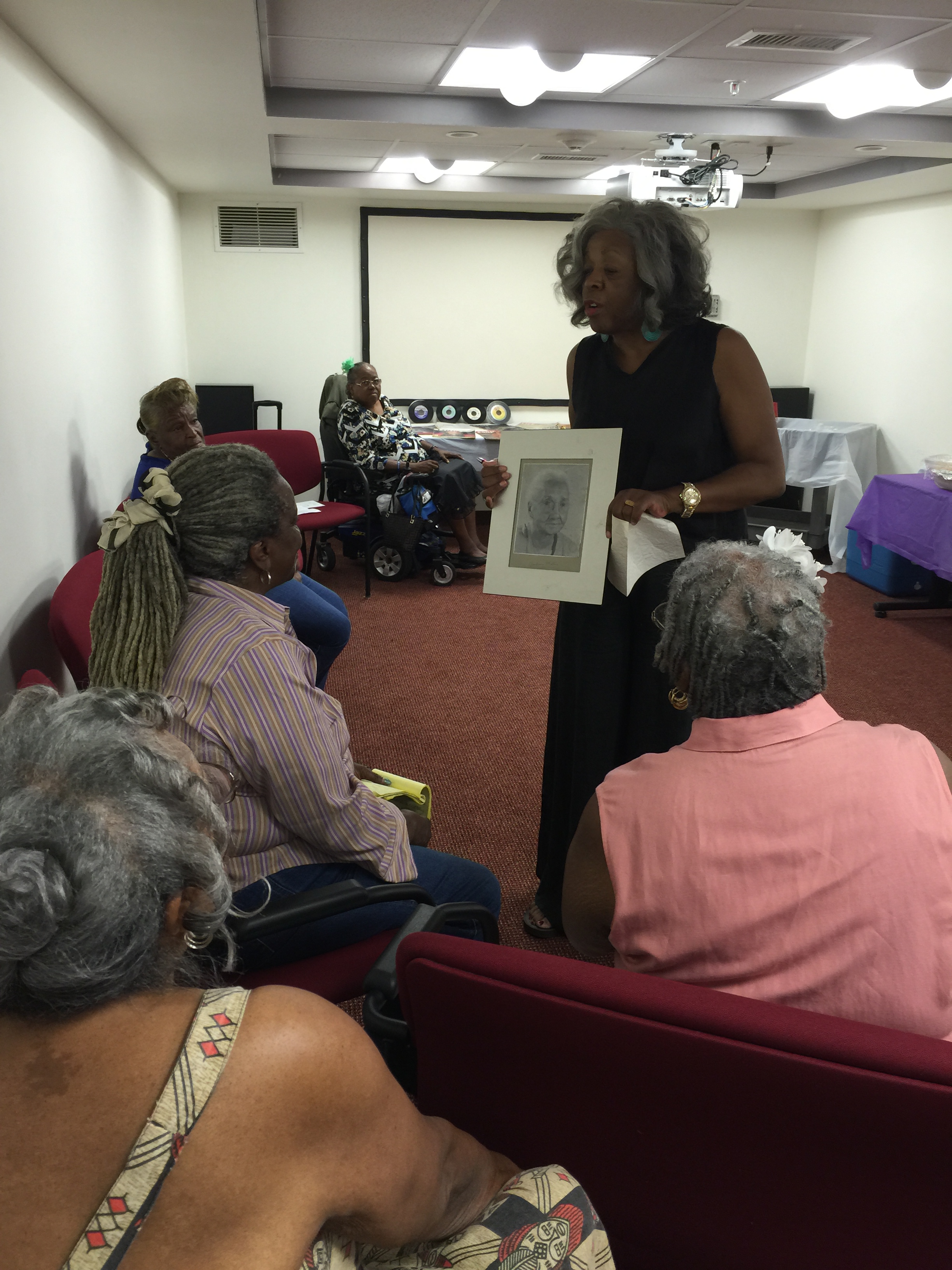
The enthusiasm with which seniors greeted my initial attempts to gather their stories and create performances is testimony to the social value of reminiscence theatre. We have staged full productions around historical episodes, identified seniors who were alive at the time, and gathered their story for events. For example, Double Nickels participated in the 100th Anniversary of the National Cherry Blossom Festival in Washington, DC. We identified and interviewed ten centenarians and two Sages who were in their nineties. They were alive when the cherry trees first came to Washington. We engaged professional actors to perform their stories and the Japanese ambassador participated in the production. There was excitement all around. The centenarians came to the performance and enjoyed their time in the spotlight, and we thanked them by recording and publishing their stories, honoring their presence, having their portraits made, and throwing a wild party to celebrate their lives while they could still hear their applause.
Celebrating the lives of seniors while they can still hear their applause is the original goal of the Double Nickels Theatre Company. Story content is everywhere and our productions are based on the reminiscences of these personal tales, cultural experiences, and nostalgic musings. Our stories vary in production mode. The owner of the story will frequently perform it. Occasionally we will incorporate professional actors and have recently begun including “youngsters” who, in performance, represent the story owner at the age he/she was when the story took place.
Our audiences include not just senior citizens but high school and undergraduate students. Frequently, younger audiences find Double Nickels Theatre Company to be an interesting choice for community service activities or a good place to volunteer when their interests include caregiving and creative aging projects. We encourage the cross-generational communication. Both groups learn—seniors become a little more social-media savvy and several have started taking a look at hip-hop as well. Students begin turning off their smart phones and actually talking to the Sages. With additional outreach and performance angles, our audiences have expanded considerably. We have developed a curriculum so that students can learn and digest what we take for granted—telling stories and sharing memories.

One of our projects is an Age Exchange program at a veterans’ retirement home. Through this program, we introduced high school juniors and seniors to World War II veterans. One army vet had been an aerial photographer in WWII, run across Panama twice, and hunted tigers in India. The student, Jason, who interviewed the phenom, Mr. Steele, could hardly take notes for listening and jaw dropping. Jason begged to play the part of Mr. Steele in our performance and was fantastic. He kept in touch with Mr. Steele for several years. Fun, excitement, awe, history, real communication, and theatre—all from true stories taken from the memories of seniors.
And always, there is humor. At the beginning of Jason’s work with us, I asked him to introduce himself to the veterans. He began by mumbling his name and not making eye contact. An old retired sergeant shouted from the far end of the table “Son, open your mouth! Everyone in here is hard of hearing. You need to sit up straight, too. It will help you with your projection.” Jason snapped to like a new recruit, looked the old sarge right in the eye, and projected like his life was on the line. I don’t know how he was in other places, but from that day forward with us, Jason could always be heard.
Reminiscence theatre is a valuable way for seniors to contribute to our cultural sustainability and creative aging efforts. We recall the events that shape what we become. These events inform the narrative, highlight that which would be marginalized, and can serve as examples of a broader history. Reminiscence theatre is also safe. It does not deny or reject the recollections of seniors. It celebrates their experiences, forms the basis for academic research, and is a creative stimulus for seniors as long as they can hear their applause.
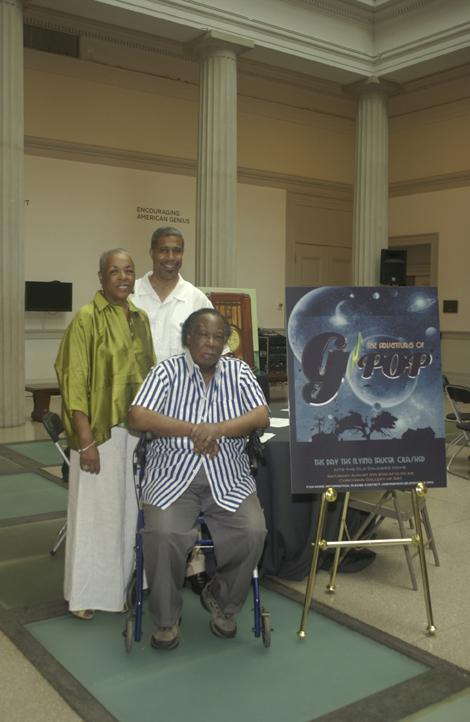
on a true story from the life of Melvin Wendell Ford (seated) when
he was 11 years old. It was performed at the Corcoran School of Art,
where a student created a painting of an old-fashioned radio.
Igwe Bandele (center) narrated the story and Antoinette Ford (left)
produced the event. Photo by Regan Leslie Ford, 2012.

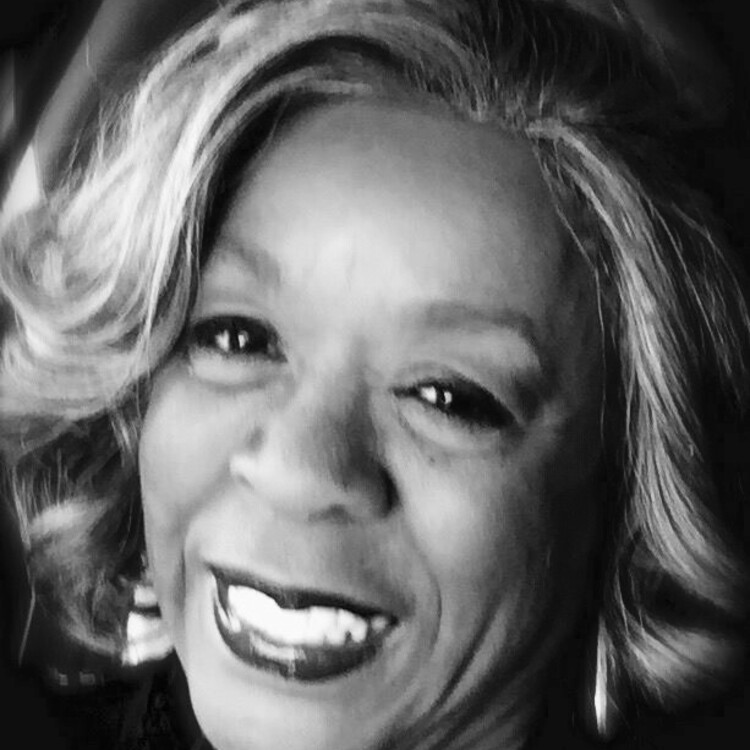

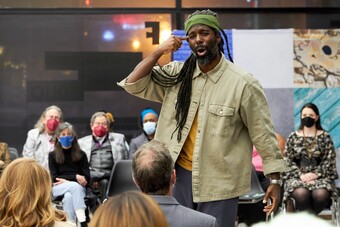






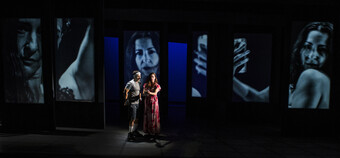


Comments
The article is just the start of the conversation—we want to know what you think about this subject, too! HowlRound is a space for knowledge-sharing, and we welcome spirited, thoughtful, and on-topic dialogue. Find our full comments policy here